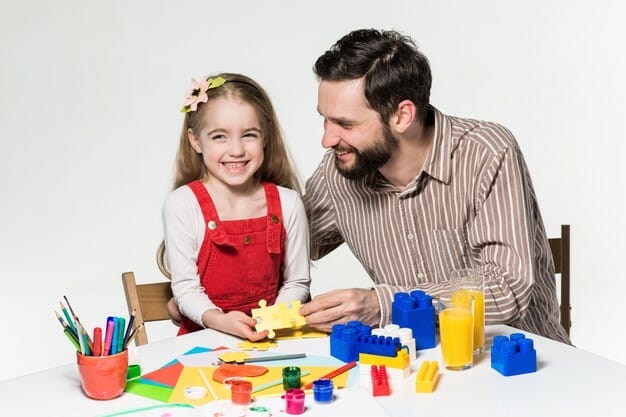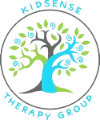Being a clinical fellow in a pandemic has had many uncertainties, but also afforded me time to examine the many aspects that could contribute to who I become as I work toward my certification of clinical competence. These past seven months have given me the time to really dive into the standards as they are defined by ASHA in Standard V-A & V-B. These standards outline the expectations of clinically competent speech language pathologists as the following: “communicating effectively, recognizing the needs, values, preferred mode of communication, and cultural/linguistic background of the individual(s) receiving services, family, caregivers, and relevant others, including other professionals” (ASHA 2018).
As I navigated my way through the first few months of my clinical fellow year, I saw how my ability to communicate, especially my word choices could shape the environment and relationships I created. While this may seem apparent given that as SLPs we work on communication, I’m sure other CF’s out there can relate that there is a whole different set of clinical skills beyond understanding the causes and interventions related to communication disorders. It may be challenging to reflect on other factors that influence our practice when communicating with our clients, who ironically enough we are supporting to be more successful communicators. Our words set the tone to either help or hinder the rapport that we build with each client. While a typical speech therapy session usually lasts less than an hour, the impressions we make as clinicians are likely to extend beyond that short period. So how often are we taking time to reflect on our own language? We spend hours each week evaluating and assessing others’ expressive, receptive and pragmatic language skills, but when is the last time we sat down and reflected on the content of our own language or what influences our words and actions?

Throughout undergraduate and graduate education, we sit through numerous lectures covering the importance of cultural competence. We should be able to define it as demonstrating behaviors and communicating appropriately with others from a variety of cultural and linguistic backgrounds. But how do we get there? For me, it began last summer, where I realized how uneducated I was on the social injustices occurring in our country. My initial reaction was to become educated on how I could become more conscious of my own preconceived biases. At first, I was uncomfortable recognizing my own privilege and unable to see how it was influencing my view of the world. But it was necessary for me to get comfortable with the uncomfortable, which is something we often teach our clients. I needed to see how my own privilege and biases obstructed my ability to acknowledge and recognize the different perspectives and experiences my clients, families, and colleagues brought with them. As SLP’s we are fortunate to work with clients from a vast number of cultural backgrounds, gender identities, and family nuclei where we must create environments that are inclusive. The most effective way to do this is through being intentional in evaluating our biases and being mindful communicators. But how do we ensure our intentions are carried out?
I happened to come across one piece in particular, by Kathleen Ebbitt on Global Citizen that really resonated with me. She said, “having privilege does not mean that an individual is immune to life’s hardships, but it does mean having an unearned benefit or advantage one receives in society by nature of their identity.” This clarified that regardless of my personal triumphs and failures I am privileged due to the color of my skin, socioeconomic status, sexual orientation, ability and even language. I had to take a step back and recognize that the idea of privilege has nothing to do with the hardships you encounter throughout life, because everyone will encounter hardship, and no one is privileged enough to go through life without some pain or suffering. However, moving away from this idea that recognizing my privilege diminishes my hardships was the first step in truly understanding how my privileged experiences influence how I think, feel, and act today. Acknowledging our privileges and biases is not something we can always come to alone. We need to find spaces where we can openly discuss them and assess how our biases contribute to our everyday practices so that we may be intentional and accountable.
Although our clinical fellowship is not the only opportunity we have to develop ourselves, it is certainly a pivotal point in our careers. I know we are eager to land jobs after school, and get to working on our supervised experience, but I hope each of us new fellows can focus on developing our cultural competence and responsiveness as we earn our C’s.

We have the gift of working with tomorrow’s leaders, and it’s imperative that we foster that belief in them. Being a mindful and conscious communicator is acknowledging that we need to be lifelong learners and understand the power of our words. To my clinical fellows, I encourage you to prioritize your cultural responsiveness just as much, if not more than all your other skills. There are amazing SLPs dedicated to teaching us and sharing their knowledge through multiple platforms. Follow and invest in the work because we all need to do better. I hope newly graduated clinicians sense the urge to start their learning and unlearning. We have the unique opportunity as new clinicians to set our intentions and begin our career with a changed mindset and we must not take that role lightly.
Resources:
Council for Clinical Certification in Audiology and Speech-Language Pathology of the American Speech-Language-Hearing Association. (2018). 2020 Standards for the Certificate of Clinical Competence in Speech-Language Pathology. Retrieved from https://www.asha.org/certification/2020-SLP-Certification-Standards.

